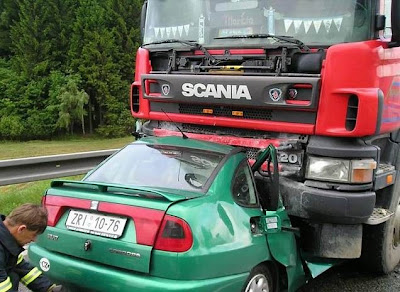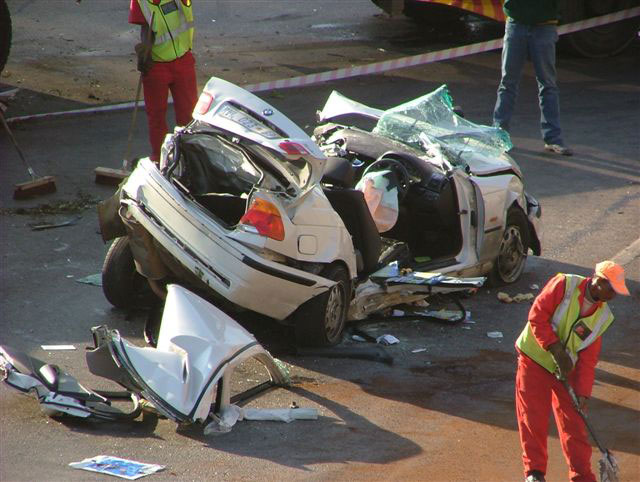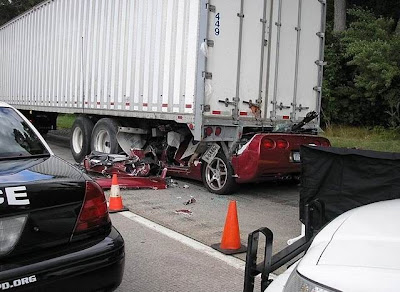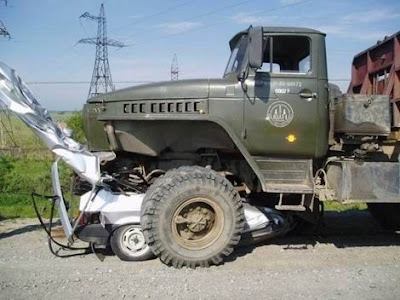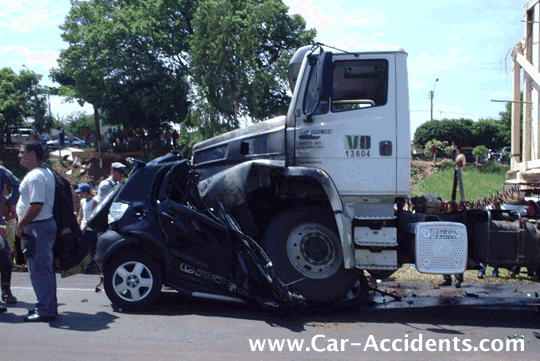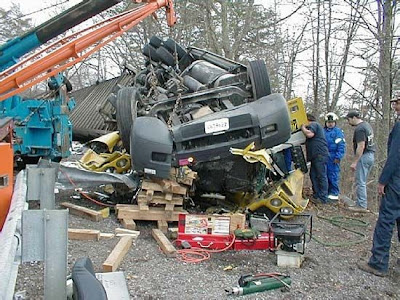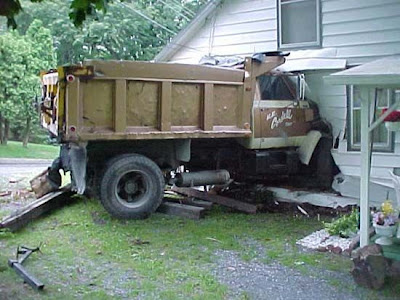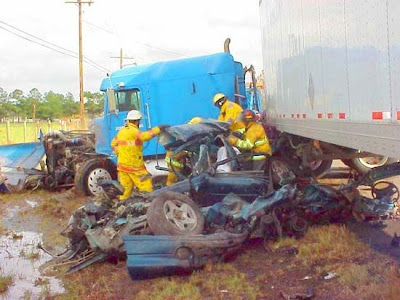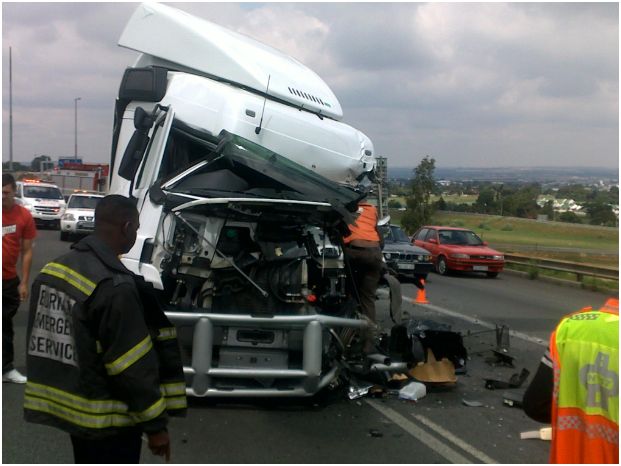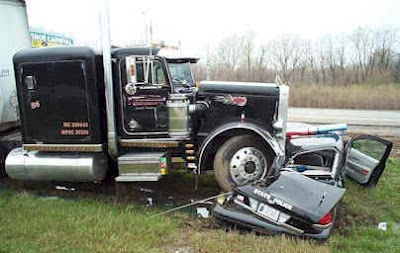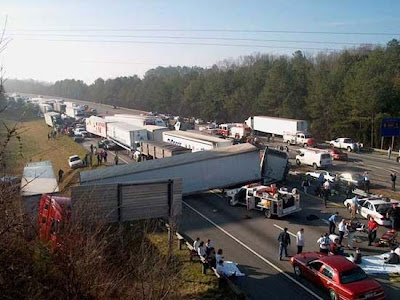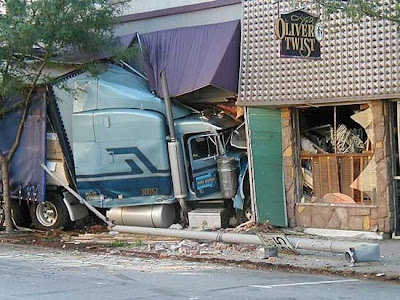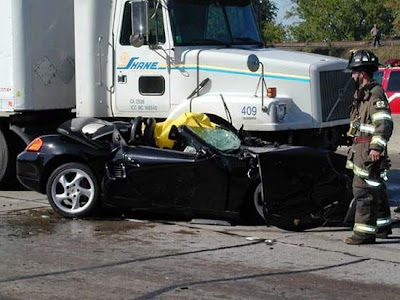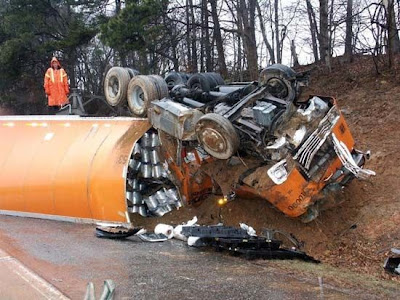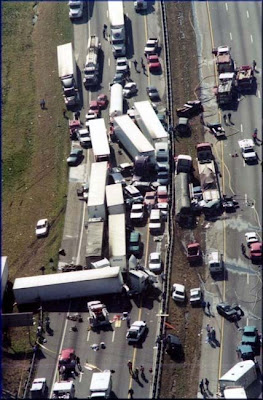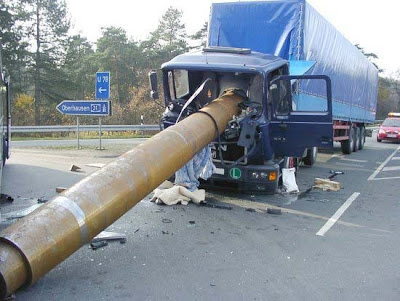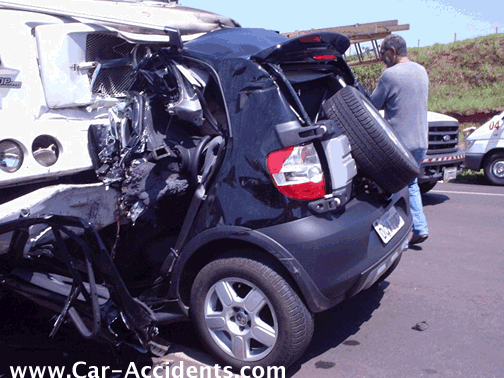
 Do you also drive more cautious when a big red “L” is displayed in the back window of the vehicle ahead of you? And why do you do this – is it perhaps because you remember your limited driving skills whilst you were a learner driver?
Do you also drive more cautious when a big red “L” is displayed in the back window of the vehicle ahead of you? And why do you do this – is it perhaps because you remember your limited driving skills whilst you were a learner driver?
In the past month a few posts on this road safety blog reflected on the dangers of underage driving and unfortunately a number of fatal accidents were caused by these drivers. But is this threat uniquely South African or is this also a topic of hot debate elsewhere?
I was recently informed that Australia and some other countries use an “intermediary stage “where young drivers who have received their licenses are referred to “L-Platers”. This system allows for special restrictions on new drivers.
In South Africa we merely have the Learner’s license stage and having succeeded with your practical you become a legal driver without specific restrictions. Is this perhaps expecting too much from our young drivers? Most new drivers, when having parents next to them, drive with caution and within the rules of the road. The same drivers however often undergo a metamorphosis when you combine a few drinks, young passengers and driving late at night.
The Centre for Child Law provides interesting information on what age young people are permitted by law to perform specific actions: Some of these are:
• 14 years: At 14 years you are considered to be fully capable of committing a crime, and if the case is very serious you could even be sent to prison if you are found guilty, although the courts do have other options as well, like community service.
• 15 years: You must attend school until the end of the year in which you turn 15 years of age.
• 15 years: You can start working when you are 15 years old, but you may not do work which is harmful or hazardous to your health.
• 16 years: At 16 years you can consent to having sex. The age of consent is the same for boys and girls. Having sex with a person under the age of 16 years is illegal, even if that person agrees to have sex.
• 16 years: You can make your own will (but make sure that your signature is witnessed by two other people over the age of 16 years who are both present whilst you sign and whilst each of them sign).
• 17 years: You can get your learner’s licence.
• 17 years: You can join the army.
• 18 years: You can vote.
It might appear somewhat scary that at the age of 18 a young driver with a license can drive without any additional requirements or restrictions. At present there is a debate in Australia pertaining to young drivers. This is called the “P-Plate” debate and centers around the topic which restrictions can be placed on newly licensed young drivers. Some of these restrictions include”
• Night curfews : Restricting new young drivers from driving late at night
• Passenger restrictions: Restricting these drivers from transporting several passengers
• Restricting young drivers from driving powerful cars… [which might be somewhat contrary to the other requirement of safety?]
South Africans Against Young Drivers (SADD), a NGO focusing on the hazard of drunk driving, is proposing that we implement a program for novice drivers – and that there should be a 0.00g per 100ml blood alcohol level for the first 3 years after getting your drivers license, regardless of age.
Is it not perhaps time that we re-consider the level of responsibility that we expect from young drivers? Should we not through legislations provide the requirements and guidance for responsible young driver behavior?


























 A truck (North American and Australian English) or lorry (British and Commonwealth English) is a motor vehicle designed to transport cargo. Trucks vary greatly in size, power, and configuration, with the smallest being mechanically similar to an automobile. Commercial trucks can be very large and powerful, and may be configured to mount specialized equipment, such as in the case of fire trucks and concrete mixers and suction excavators. Modern trucks are powered by either gasoline or diesel engines, with diesel dominant in commercial applications. In the European Union vehicles with a gross combination mass of less than 3,500 kilograms (7,716 lb) are known as Light commercial vehicles and those over as Large goods vehicles.
A truck (North American and Australian English) or lorry (British and Commonwealth English) is a motor vehicle designed to transport cargo. Trucks vary greatly in size, power, and configuration, with the smallest being mechanically similar to an automobile. Commercial trucks can be very large and powerful, and may be configured to mount specialized equipment, such as in the case of fire trucks and concrete mixers and suction excavators. Modern trucks are powered by either gasoline or diesel engines, with diesel dominant in commercial applications. In the European Union vehicles with a gross combination mass of less than 3,500 kilograms (7,716 lb) are known as Light commercial vehicles and those over as Large goods vehicles.
















































